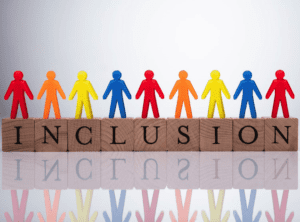What is Inclusive Leadership?
“Leadership is a dialogue, not a monologue. To enlist support, leaders must have intimate knowledge of people’s dreams, hopes, aspirations, visions, and values.” — Jim Kouzes and Barry Posner.
Great leadership is the heart of great businesses and great organisations.
Inclusive leadership has become a popular topic in the last few years, largely due to the increased push on equitable access to equal opportunities in the workplace. Inclusive leadership is also important to support colleagues who have been through an unusual year due to the pandemic.
It allows employees to say, “I belong here”, “I feel valued” and “I can be my true self”.
The inclusive leadership style was initially studied in the field of Western education. People of different races and abilities should be educated inclusively.
Inclusive leadership is an authentic leadership style that rules out discrimination. Organisations that have a reputation of strong inclusivity become highly sought-after companies to work for and generally attract top diverse talent and committed customers and clients.
Less than a third of employees believe their leaders see, value, and respect them as a whole person
How can I become an Inclusive Leader?
A few examples of the characteristics found in an Inclusive leader.
- They possess a strong sense of personal responsibility for change.
- leaders are self-aware and identify, understand, recognise, and correct their own biases.
- Inclusive leaders invest time in building real relationships with their team members and employees, understanding what matters to them and what they need to be successful.
- They accept that they are vulnerable and are not afraid to show it.
- They are team players, knowing what to do best for the team.
- Their communication skills are excellent. In fact they don’t just listen but actually hear what is said.
- Inclusive leaders are aware of the tremendous responsibility they have to contribute to the empowerment and inclusiveness of the organisation.
- Inclusive leaders always encourage people to speak up.
- Inclusive leaders are comfortable communicating about diversity and inclusion.
- They show courage by seeking feedback and acknowledging personal weakness and challenging the status quo and calling out bias when they see it.
- Inclusive leaders are curios and are open to different ideas and perspectives.
- They develop an awareness of how cultural stereotypes can influence expectations.
- Inclusive leaders will always tell the truth. They are radically open and transparent in their communications to all employees, even when the message may be difficult.
If you would like help in developing leadership skills, please feel free to call us for a chat. We would love to help.


